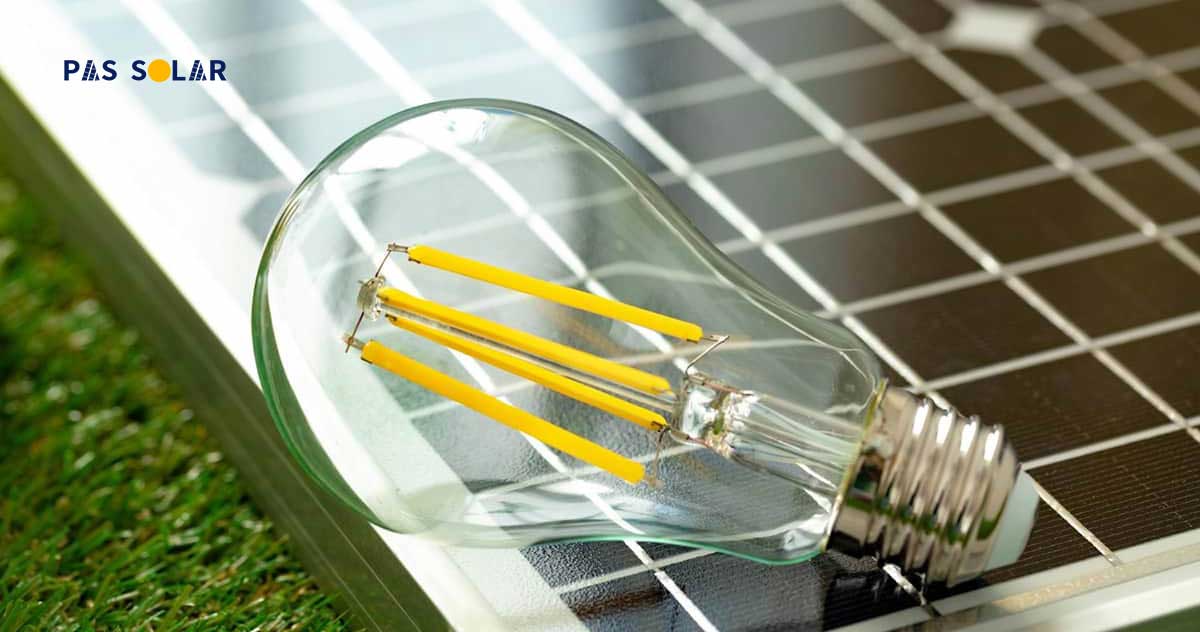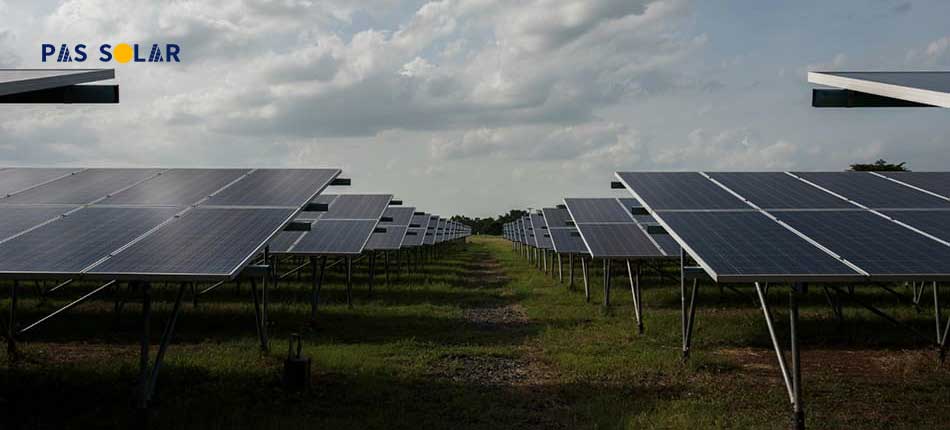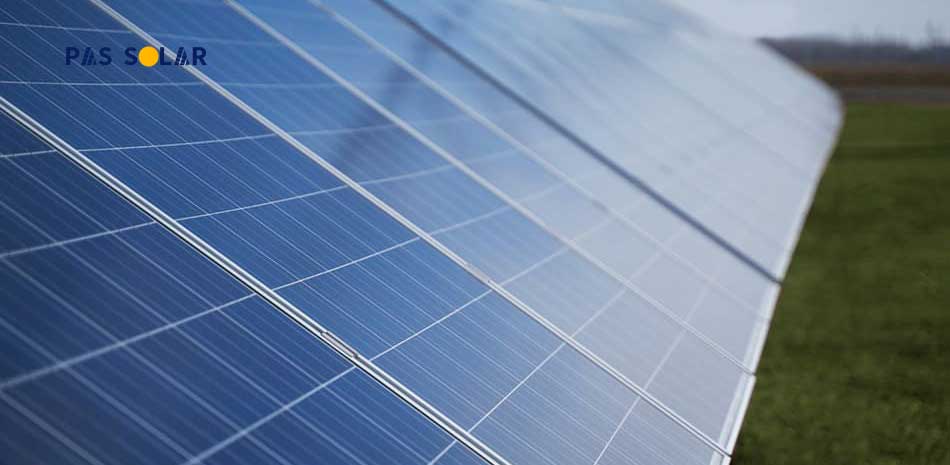Solar panel efficiency is the measurement of a solar panel’s ability to transform sunlight into electricity. For example, if the sun shines on a high-efficiency solar panel with a rating of 20 percent, then 20 percent of the sun’s energy will be converted into solar energy. Given the same amount of sunlight shining for the same period on two solar panels with different efficiency ratings, the more efficient panel will produce more electricity than the less efficient panel. The efficiency of solar panels is measured by the generating of electricity by solar cells, which then is affected by the surrounding components, the composition of the cells, the electrical configuration, and more.
What does solar panel efficiency mean?
The overall solar panel efficiency is determined by the combined efficiency of each cell that makes up the panel. Several factors determine the efficiency of the cell, including the structure and the type of material used (usually monocrystalline or polycrystalline).
How efficient are solar panels?
Today, most solar panels, like the Longi solar panels Dubai, have an efficiency of between 15 and 20 percent, with outliers on both sides of the range. High-efficiency solar panels can exceed 22% efficiency in some cases (and almost reach 23 percent!), but most of the available photovoltaic panels have no more than 20 percent efficiency. It’s worth noting that higher-efficiency panels are a little more expensive, but they will help you meet your energy needs, especially if you have a smaller roof and limited space.
If solar panel efficiency rates seem a little low to you at first glance, do not be alarmed. The efficiency standard is only increasing with the emergence of new technologies and manufacturing capabilities. Scientists have been able to achieve a record efficiency of 40 percent by using multi-junction cells optimized to capture different frequencies of light. Meanwhile, however, current panel offerings generate more than enough usable electricity for most industrial and home projects. If you’re interested in knowing more about the efficiency of solar panels, read this article to see how it has changed over time. Also, visit Off Grid Solar Inverter supplier in UAE in our website.
What is the best solar panel efficiency?
Monocrystalline solar panels have the best solar panel efficiency, with polycrystalline and thin film solar panels being the other panel types. However, for those looking to buy solar panels, it is important to consider both solar panel cost in UAE and overall efficiency to determine the type of panel that is best for you. It is important to keep in mind that different types of solar panels vary in the material from which they are made. Its composition determines not only its cost but also its efficiency.
What determines solar panel efficiency?
Several factors control the efficiency of a solar panel. The efficiency of a solar panel cell is measured by the amount of absorbed sunlight that the cell can transform into electricity. But what factors influence that final conversion rate? There are several elements that photovoltaic (PV) cell researchers and manufacturers consider when designing and producing high-efficiency solar technologies:
Solar material:
The kind of material influences the way sunlight is transformed into electricity.
Wiring:
The organization of busbars and solar panel cables for sale in Dubai on a solar energy system that captures and transfers electricity affects the efficiency.
Reflection:
If the light is reflected away from a solar panel, its efficiency may decrease. That is why the glass layer on top of silicon solar cells is so necessary.
Wavelength/frequency of light:
Light is composed of particles called photons, which vibrate in a wide range of frequencies that make up all the visible and invisible light emitted by the sun. When sunlight shines on the surface of a photovoltaic cell, some photons are reflected, some go through, and some are received, based on frequency and wavelength. Some of the absorbed light can be converted into heat, while the remaining photons passing through it have the right amount of energy to separate electrons from their atomic bonds, which produces an electric current. The wider the range of photons (e.g. ultraviolet, infrared) that a solar system can receive, the higher the solar panel efficiency.
Positioning and angle:
To capture the maximum amount of sunlight, proper solar panel installation and an optimized angle are key. Read our article on how the angle of the solar panel affects performance to learn more.
Temperature:
A higher temperature will lower energy generation and efficiency, therefore some panels are designed for hotter climates. Browse Pas Solar website to learn how temperature affects the performance of solar panels, to learn how to find the right angle.
Climate:
Depending on where you live and the type of climate you have, the efficiency of your solar panel can be positively or negatively affected. For example, solar cells stop working when more than five centimeters of snow accumulates on the panel. In addition, small decreases in efficiency can be found on particularly windy days.
Shade:
Even a small shade on a single panel can reduce the overall efficiency of the system. While panel manufacturers do not take shade into account, it is an important factor to consider and mitigate, if possible, when installing solar panels. Read our article on solar panels and shade for more information.
Frequently Asked Questions about solar panel efficiency
The average solar panel efficiency on the market is 15 to 18 percent. The more efficient the solar panels, the higher the energy production and, ultimately, the more savings for the owner. Before you purchase solar panels, you can calculate the efficiency using the solar panel efficiency formula.
Some photons that shine on a solar cell are reflected from the surface of the cell. Of those photons that are absorbed, some have their energy converted into heat in a process of internal recombination instead of producing electric current.
There is a drop in solar panel efficiency over time. The solar panel efficiency is higher than ever, but the amount of electricity that the panels can generate still gradually decreases over time. What is the typical solar panel efficiency?
Why is solar panel efficiency so low?
Do solar panels lose efficiency over time?





